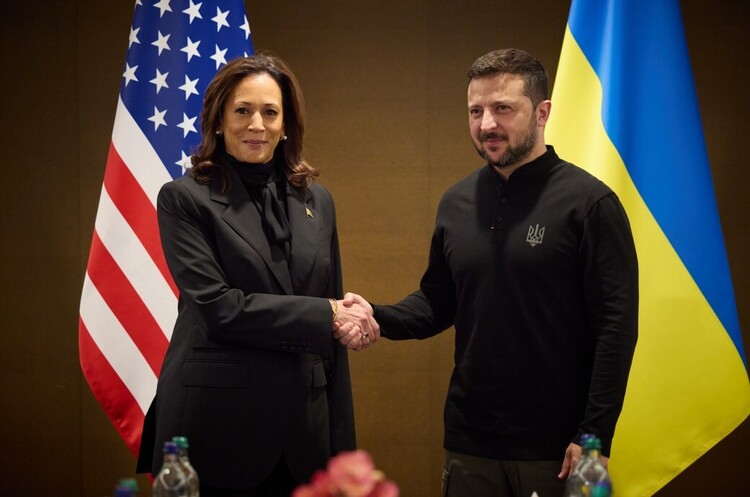TIME: Zelenskyy and Kamala Harris have a difficult relationship
The publication recalls the times when Harris conveyed the US position not to give Ukraine weapons before the Russian invasion in order "not to provoke Putin"

Zelenskyy called on the US to impose preemptive sanctions on Russia, arguing that this would force Vladimir Putin to reconsider his decision to invade. Zelenskyy argued that if an attack is indeed imminent, the US should send weapons to Ukraine, including anti-aircraft systems, fighter jets and heavy artillery, necessary to prevent Russian troops from attacking the country.
Harris rejected both offers, according to Ukrainian officials present. The United States cannot impose preventive sanctions on Russia because punishment can only come after the fact, she explained.
Instead of providing weapons, Reznikov said, the Americans pressured Zelensky to publicly state that an invasion was imminent.
"Zelensky clearly asked Kamala Harris: "You want me to admit it, but what will it give you? If I admit it here, in this conversation, will you impose sanctions?" And he didn't get an answer".
The US position at the time, determined by President Biden in consultation with his national security advisers, was that the threat of sanctions was a greater deterrent to Russia than the imposition of sanctions, and that providing Kyiv with weapons would likely reinforce Putin's belief that Ukraine had become a NATO "puppet".
"Vice President Harris is a strong advocate for continued U.S. support for Ukraine and has repeatedly expressed her unwavering commitment to supporting the people of Ukraine in their defence against Russia's brutal aggression," the White House official said.
Harris' other role at the conference was to rally European leaders to respond together if an invasion were to take place, and to set out the US position in a speech.
"She met with European leaders to coordinate their actions in anticipation of a Russian invasion," a White House official told TIME. In her speech at the conference, "she anticipated the Russian sequence of events and outlined steps the United States and Europe would take together."
Still, the message she delivered to Zelenskyy in Munich reinforced his frustration with his allies before the Russian invasion and set the tone for a relationship with Harris that has never been particularly warm.
While President Biden and other senior administration officials have travelled to Kyiv to demonstrate resolve and solidarity with Ukrainians, Harris has not been to Ukraine since the invasion.
In her meetings with Ukrainian officials, she did show sympathy for their plight, "but I would call it a formal condolence, according to protocol," said one of them.
This June, Harris also attended the Ukraine peace summit organised in Switzerland. Her meeting with Zelenskyy was as formal as their previous meetings. The two leaders sat directly across from each other at the negotiating table, with Zelenskyy stiffly reading a set of prepared remarks, thanking President Biden and the US Congress for their support.
In response, Harris noted that this would be her sixth meeting with the Ukrainian president since the start of the full-scale war.
"Not the last," Zelenskyy replied with a smile.
"And hopefully in better times," Harris said.
Simon Schuster is one of the most prominent Western journalists writing about Ukraine. He recently published a book about Zelenskyy, which details the biography of the Ukrainian president and his life in the first months of the war.
Background. As a reminder, the first poll in the US after Biden's withdrawal from the presidential race showed Kamala Harris ahead of Trump.
If you have read this article to the end, we hope that means it was useful for you.
We work to ensure that our journalistic and analytical work is of high quality, and we strive to perform it as competently as possible. This also requires financial independence. Support us for only UAH 196 per month.
Become a Mind subscriber for just USD 5 per month and support the development of independent business journalism!
You can unsubscribe at any time in your LIQPAY account or by sending us an email: [email protected]



